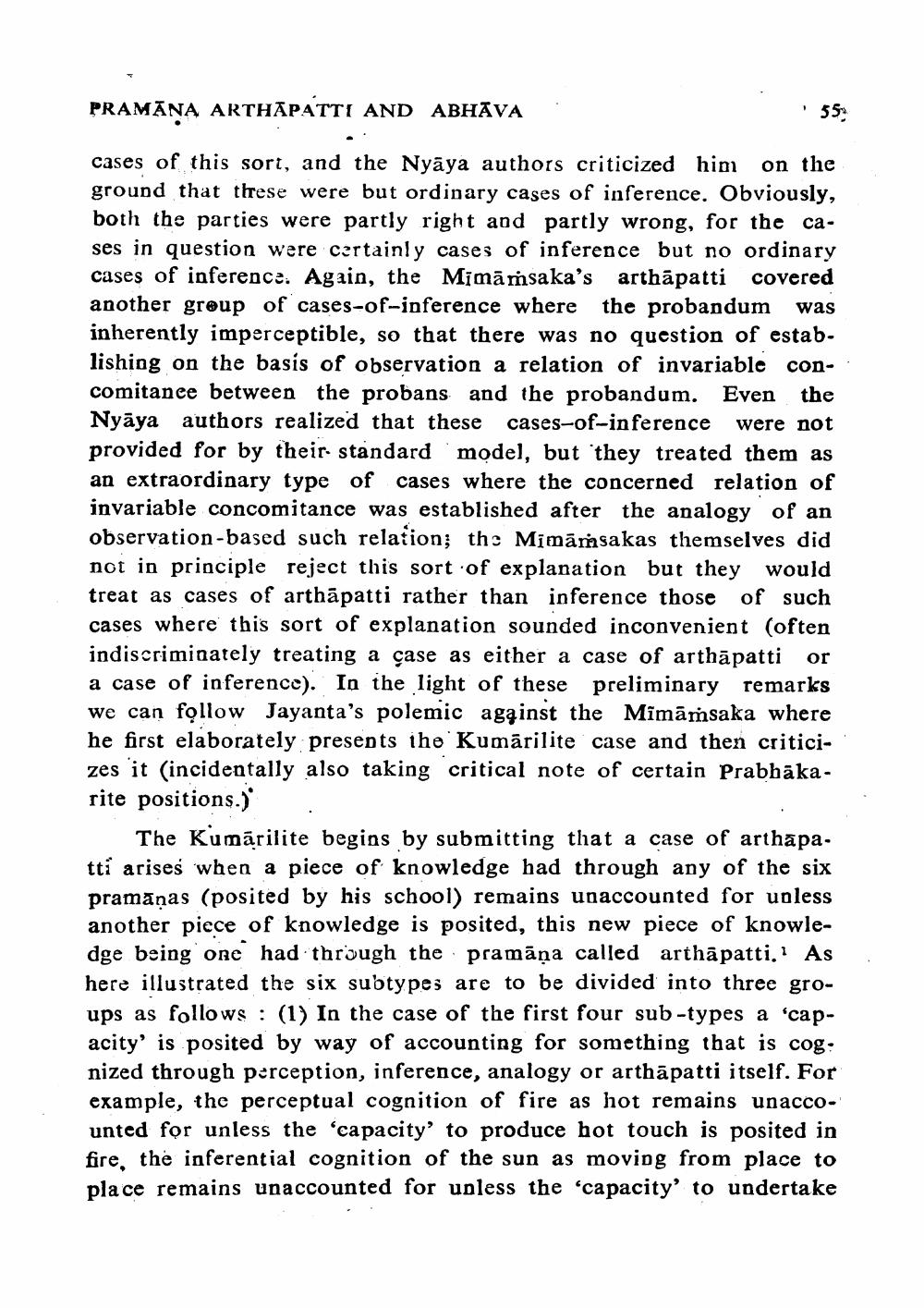________________
PRAMĀNA ARTHĀPATTI AND ABHAVA
'557
cases of this sort, and the Nyāya authors criticized him on the ground that these were but ordinary cases of inference. Obviously, both the parties were partly right and partly wrong, for the cases in question were certainly cases of inference but no ordinary cases of inference. Again, the Mimāṁsaka's arthāpatti covered another group of cases-of-inference where the probandum was inherently imperceptible, so that there was no question of establishing on the basis of observation a relation of invariable concomitance between the probans and the probandum. Even the Nyāya authors realized that these cases-of-inference were not provided for by their standard model, but they treated them as an extraordinary type of cases where the concerned relation of invariable concomitance was established after the analogy of an observation-based such relation; the Mimāmsakas themselves did not in principle reject this sort of explanation but they would treat as cases of arthāpatti rather than inference those of such cases where this sort of explanation sounded inconvenient (often indiscriminately treating a case as either a case of arthāpatti or a case of inference). In the light of these preliminary remarks we can follow Jayanta's polemic against the Mîmāṁsaka where he first elaborately presents iho Kumārilite case and then criticizes it (incidentally also taking critical note of certain Prabbākarite positions.) .
The Kumārilite begins by submitting that a case of arthapa. tti arises when a piece of knowledge had through any of the six pramāņas (posited by his school) remains unaccounted for unless another piece of knowledge is posited, this new piece of knowledge being one had through the pramāņa called arthāpatti.' As here illustrated the six subtypes are to be divided into three groups as follows: (1) In the case of the first four sub-types a 'capacity' is posited by way of accounting for something that is cog. nized through perception, inference, analogy or arthāpatti itself. For example, the perceptual cognition of fire as hot remains unacco. unted for unless the 'capacity' to produce hot touch is posited in fire. the inferential cognition of the sun as moving from place to place remains unaccounted for unless the 'capacity' to undertake




